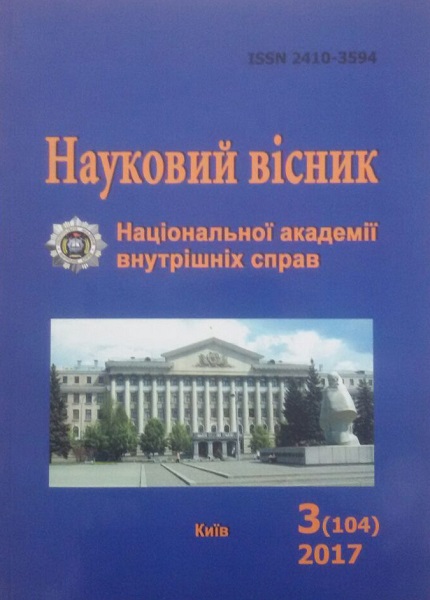CONCEPT, ESSENCE AND MEANING OF REVISION (AUDIT) IN CRIMINAL PROCEEDINGS, ITS RELATION WITH OTHER FORMS OF USE OF SPECIAL ECONOMIC KNOWLEDGE
Abstract
After investigating the work of various scholars who provided the
definition of the concept and essence of the term «revision» (audit),
and by comparing the analysis with the legally defined notion and the
nature of the audit, the author suggests a more precise definition of
it. According to the author, the audit is a form of state financial
control, which consists of documentary and actual verification of a
certain complex or separate issues of financial and economic activity
of the object of control, and must ensure the detection of existing
facts of violation of the law, the establishment of guilty in their
acceptance of officials and materially responsible persons
The author also examined the circumstances of using the materials
of the audit by an expert during the forensic economic expertise, as
well as the participation of a specialist-economist by providing advice
to the investigator, the prosecutor during the pre-audit, also by
participating, together with the officials of the DASU, in conducting
and drawing up the results of the audit itself.
Downloads
Abstract views: 116 PDF Downloads: 46
- Authors reserve the right to authorship of their own work and transfer to the magazine the right of the first publication of this work under the terms of the Creative Commons Attribution License, which allows other persons to freely distribute published work with mandatory reference to authors of the original work and the first publication of an article in this magazine.
- Authors have the right to enter into separate additional agreements on non-exclusive dissemination of the work in the form in which it was published in the journal (for example, to post an article in the institution's repository or to publish as part of a monograph), provided that the link to the first publication of the work in this journal is maintained.
- The journal's policy allows and encourages the posting of articles by authors on the Internet (for example, in electronic storehouses of institutions or on personal websites), both before the submission of this manuscript to the editorial office and during its editorial processing, as this contributes to the creation of a productive scientific discussion and positively affects the efficiency and dynamics of citing the published work.




